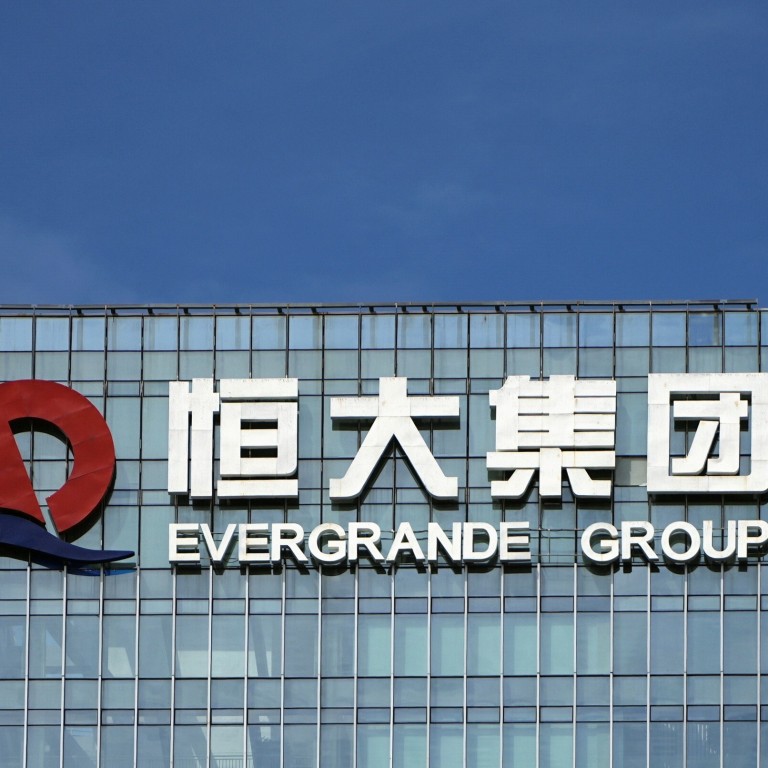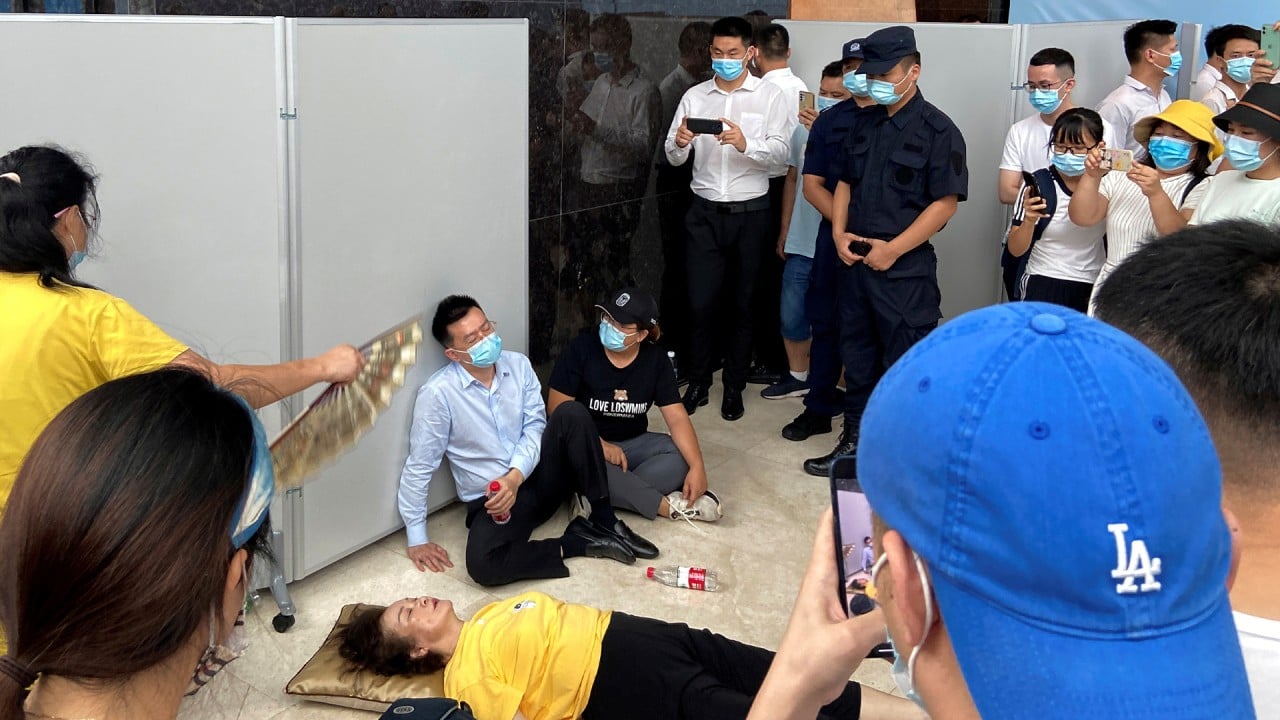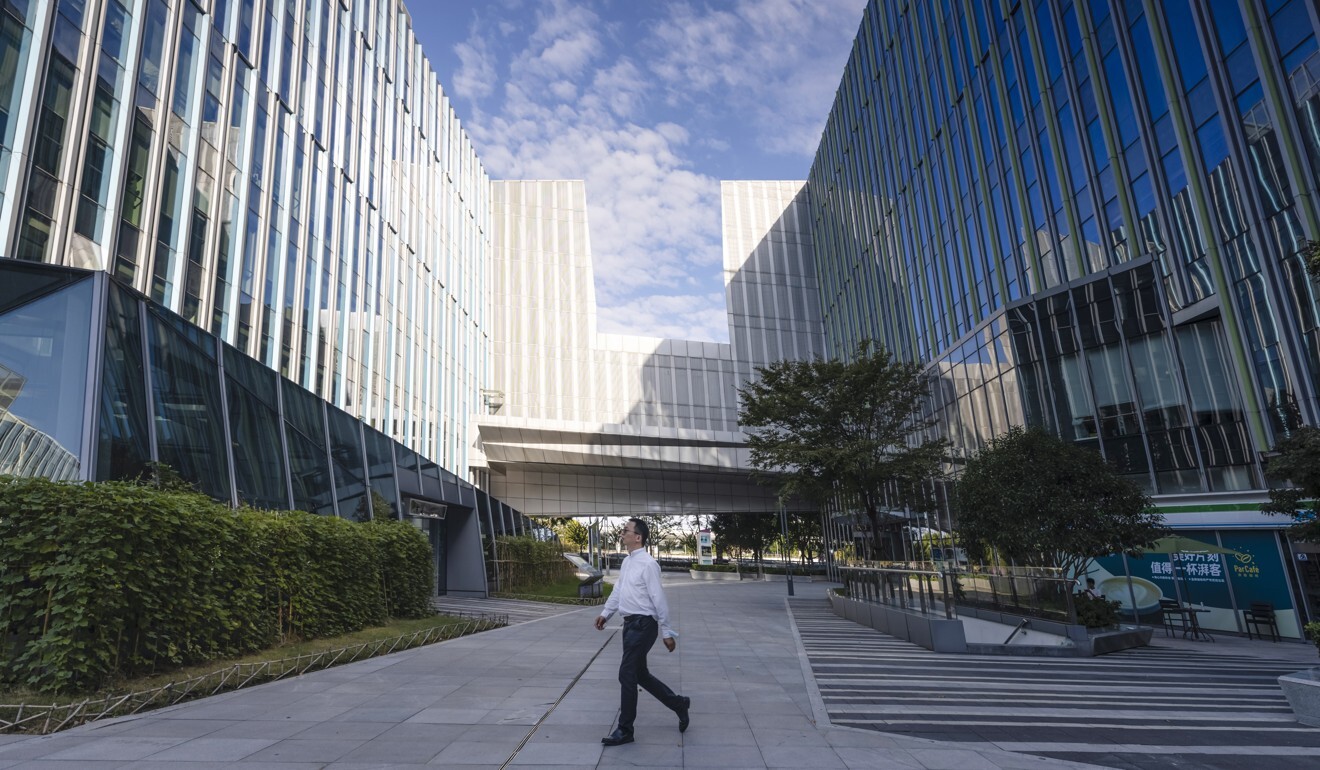
Evergrande crisis: Beijing not likely to let developer collapse even as it gets tough, analysts say
- The property developer has missed three interest payments and will default if it fails to pay US$119 million by October 23
- The government, which wants to avoid a bailout, is trying to find a way to penalise the company without creating a sectorwide panic, analysts say
Beijing will not likely allow property giant China Evergrande Group to collapse as the government devises a way to get tough on the company without inducing sectorwide turmoil, market analysts said at a conference on Wednesday.
Evergrande, saddled with more than US$300 billion in debt, has missed three rounds of interest payments in three weeks and will default on its debt if it fails to pay the combined US$119 million in interest before October 23.
“What the government is doing is this kind of a managed reconstruction” that is trying to “scare the property market” away from any further debt-fuelled growth by not bailing out Evergrande, said Andrew Collier, managing director of Orient Capital Research.
Collier’s remarks came during the China Institute Executive Summit (CIES) on Wednesday. The South China Morning Post is a strategic partner of the event.
“They are desperate to avoid a central government bailout,” Collier continued, adding that he didn’t think China’s central bank “wants to have its face on the picture of helping out the property market”.

02:28
Angry protest at headquarters of China Evergrande as property giant faces liquidity crunch
On the other hand, Beijing is also trying to contain the potential fallout that an Evergrande failure might cause, he said. The government is “actually telling the banks to start to release a little bit of cash to the property market to soften the blow”.
Beijing is signalling it is serious about reining in the worsening debt problems in a property market that has for decades been a main engine of the country’s growth.
But it is also trying to ease rising investor fears that Evergrande’s struggles will infect the entire sector and drag down an economic growth that is already showing signs of slowing.
In the last few weeks, several more developers have either missed interest payments on their bonds or warned they may not be able to make them. Shenzhen-based Fantasia Holdings Group missed its debt payment on October 4.
There is no elegant, safe, manageable exit now and we move into a phase that‘s quite uncharted
Modern Land (China), a Beijing-based developer, this week asked investors for permission to defer repaying a US$250 million bond due later this month.
And on Monday, Shanghai-based developer Sinic Holdings Group said it did not expect to pay a US$250 million bond due next week.
“Regulators need to be very careful not to allow this potential contagion effect to become quite serious,” said Li-Gang Liu, a Hong Kong-based China economist at Citigroup, during the same discussion.
Evergrande crisis weighs on China’s credit growth as financing, lending activities cool
“The government doesn’t want to see a major property market downturn,” Liu said. “For China’s property market to experience a 10-20 per cent price decline, it will create a lot of social issues.
“Not only banks will see rising non-performing loans, but consumption will be affected quite negatively.”
The most likely scenario, Liu said, is that “the government will engage in managing the restructuring. It will continue to ask banks to lend to the developer” and “try to keep the financial, economic and social issues at the minimum”.
Property markets in China contribute more to the country’s GDP than they do in many other economies. Its real estate and related industries account for about 30 per cent of China’s GDP, compared with 22 per cent in the US.

That outsize role was partly caused by Beijing’s back-pedalling on market economy reforms that dried up other nonproperty investment options, Daniel Rosen, a founding partner of investment consultancy Rhodium Group, said during a separate CIES panel.
“For want of the kind of productivity that market reform opens up, the nation and the economy have had to fall back on that same overreliance on the property sector,” Rosen said.
This overreliance “has created a situation in the property sector and debt in general, from which there is no elegant, safe, manageable exit now and we move into a phase that‘s quite uncharted”, he added.
Developer Modern Land (China) seeks debt extension
As Beijing navigates Evergrande, it is determined to crack down on the growth fuelled by unsustainable amounts of debt.
China’s debt ratio, a measure to gauge a country’s overall leverage, stood at 290 per cent of GDP; that is comparable to the US debt ratio and less than Japan’s ratio of more than 400 per cent, Fred Hu Zuliu at Primavera Capital said at CIES.
However, Hu noted, more of China’s debt is held by corporations as opposed to governments – the reverse of the situation in the US, Japan and most European countries.
“Evergrande is the most notorious example,” he said. “It is challenging and, you know, people have to be vigilant about what this means and how this will play out.”


